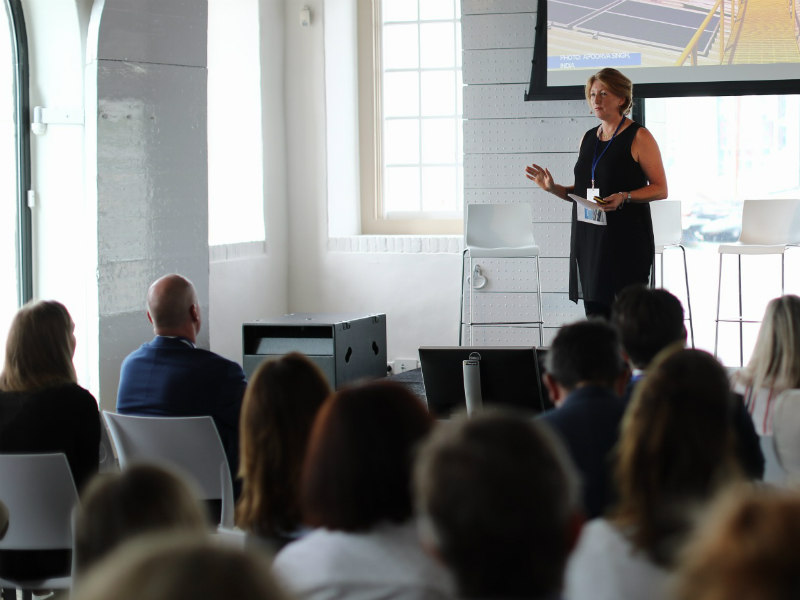Arun Sudhaman 24 May 2018 // 5:05AM GMT

AMSTERDAM — Purpose must be a driver of profit, said Unilever SVP of sustainable business development and communications Sue Garrard yesterday in a keenly-anticipated session at the 2018 In2 Innovation Summit in Amsterdam.
Speaking in a front of a packed audience, Garrard revealed three keys to building a genuine purpose-based business, starting with the imperative of ensuring that purpose is good for the business, rather than a "sexy thing to do."
"Purpose is not lipstick, it’s the DNA in your business," said Garrard. "The narrative out there is that there is a tension between profit and purpose. You absolutely have to start by knowing what your business case is."
If you are unable to demonstrate how purpose can drive profit, added Garrard, then you are left with CSR. "We closed our CSR department because we could see it was a counter to creating systemic change," added Garrard.
Garrard pointed to Unilever's 'sustainable living' brands, which have outgrown their peers, thanks to the "new contract" between business and citizens. "Sustainable living brands have grown 50% faster than the rest of our portfolio. If you get the substance of it right, that old dilemma — is it profit or is it purpose — melts away."
In particular, she used Vaseline as an example of her second lesson — 'build your brands'.
The third key, said Garrard, is to 'listen to your people', in Unilever's case its 40k employees engaging in the company's ‘Have Your Say’ project, about the future priorities for the Unilever Sustainable Living Plan. "They have become undoubtedly just the most incredible asset for our business."
Meanwhile, Garrard admitted that Unilever's biggest challenge in terms of its purpose strategy lay in convincing the investment community. "The finance guys are there to keep the bar high around business delivery and to keep looking into how you can translate that into something investors can price in, which I still think is our biggest challenge."
Addressing that, she noted, requires genuine collaboration across sustainability, marketing and communications. "The more you see that as creating mutual strength, rather than competition, the better it is."
Finally, in terms of avoiding the charge of 'greenwashing', Garrard advised companies to "embrace NGOs."
"Ask them what you can do better. Mean that seriously," she said. "This is all about motive and intent and people can tell that a mile off."
"Secondly, be brave about how transparent you are," she added, noting that people feel alienated by companies that are not being totally honest with them. "That’s why open source absolutely everything."
And, accept that you will get criticised, she warned. "You won’t get criticised anything as much for being honest as you will for being misleading," said Garrard. "Showing the wrinkles is believable and it helps people to give you credit where you deserve it."


































.jpg)

















